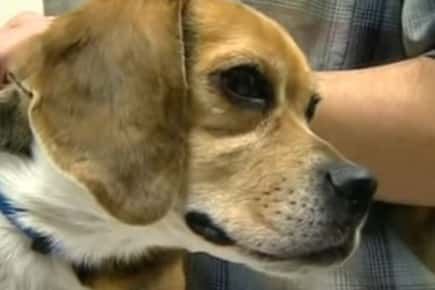Does your favorite feline leave you hairballs as gifts? If so, you’re not alone. Although we love cats for being meticulous groomers, it’s safe to say we don’t like finding hairy presents around the house. Let’s explore what causes hairballs and how to prevent them.

What Causes a Hairball?
Hairballs are clusters of fur, or hair, that your cat unintentionally swallows while grooming himself or herself. When enough hair is ingested and collects in your cat’s digestive tract, it forms a “hairball.” Cats that have long hair, shed excessively or constantly groom themselves are prone to developing hairballs.
Is It Harmful to My Cat’s Health?
Most hairballs are harmlessly coughed up by your cat and do not pose a threat to his or her health. Hairballs are usually passed in vomit or through fecal matter. However, frequent hairballs could be a symptom of abnormal gastrointestinal motility, inflamed intestinal tissue or cancer.
Please contact your veterinarian for an examination if your cat:
- Continues gagging for more than one day
- Seems constipated
- Suffers from chronic diarrhea
Ways to Prevent Hairballs
You can decrease the amount of fur that your cat ingests while grooming himself or herself by brushing your cat regularly. This should help prevent the formation of hairballs. If your cat has long hair, it’s recommended that you brush him or her daily. (In some cases, cats with long hair who are not brushed often enough can suffer from extremely matted hair, which can be difficult to manage. Once the hair is matted, it is often too difficult to brush and may require shaving.)
You can decrease the amount of fur that your cat ingests while grooming himself or herself by brushing your cat regularly. This should help prevent the formation of hairballs. If your cat has long hair, it’s recommended that you brush him or her daily. (In some cases, cats with long hair who are not brushed often enough can suffer from extremely matted hair, which can be difficult to manage. Once the hair is matted, it is often too difficult to brush and may require shaving.)
There are dietary options for your cat that may help decrease the risk of hairballs as well. Many brands of commercial cat food now include formulas to help reduce hairballs while improving the health of cats’ coat and skin. Feeding your cat these types of products may also decrease shedding and increase your cat’s fiber intake. If you do not wish to change your cat’s diet, you can opt for a hairball remedy or lubricant to help your cat pass hairballs through the digestive tract.
Another simple, and fun, solution is to purchase your cat a new toy. This will redirect your cat’s attention from grooming to playing with the new toy — and provide an opportunity to enjoy some quality time with your pet.
If your cat suffers from frequent hairballs, contact your veterinarian to discuss possible treatment options, including changing your cat’s diet.




